Dividing their time between New York and Ramallah, the artistic duo Basel Abbas and Ruanne Abou-Rahme work across text, installation, sound, film and performance, frequently making use of archival materials and artefacts to explore how ‘official’ accounts of history relate to the actual experience of the people who live through it. Since the Arab Revolutions of the early 2010s they have been maintaining a personal archive of found video clips and other recorded footage posted on social media, which form the foundation of their project ‘May amnesia never kiss us on the mouth’ (2020–ongoing) – an exploration of violence, trauma and resistance that exists in a multi-layered and constantly evolving form. The work was exhibited at MoMA, New York, earlier this year – another iteration has now travelled to the Common Guild in Glasgow, which includes new performances from the artists.
Where is your studio?
Ruanne Abou-Rahme: In Bushwick, New York. We’re lucky in that we found one of those older type lofts, so we actually live and work in the space. There’ s a whole area given over to our electronics, where we do a lot of the post-production for our works – we have a lot of sound equipment!
Basel Abbas: I would add that we also have a mobile studio situation as well. Right now, in Palestine, I have a little setup going on because I record a lot here – we have a whole set of lenses and cameras that stay in Palestine, generally smaller equipment which I guess informs the type of stuff we can do.
How do you approach working on a project together?
BA: Our practice is really engaged politically with people – so when we’re thinking about a project, we’re also concerned with how a collective voice is emerging – you know, we have friends and family in Palestine so it’s always very personal. We do a lot of reading and discussing together, but before that we ask ourselves who will care why we’re doing what we’re doing.
RAA: I feel like our work has a sense of urgency because we’re responding to things happening on the ground – and we allow events in the world to enter into the work. It’s very important that the work is malleable in this way – we’re dealing often with mourning, and with violence, and so we need to allow projects to mutate and shift in response to present conditions. In short, a lot of conversation goes into our practice – we wake up and we start talking, about what’s in the news or what we’ve been reading, and that’s how things start to come together.
Your art combines archival research with performance, sound and film. Do you have to be careful to give each part of a project the right amount of attention, or does that tend to happen organically?
BA: Both, to be honest. It’s a schizophrenic situation – you allow things to take their course, but they have to do so within a framework, with limitation you impose on them.
RAA: Each form and iteration of the work is its own thing, but each influences the other. I guess it’s like a puzzle – each completes the other.
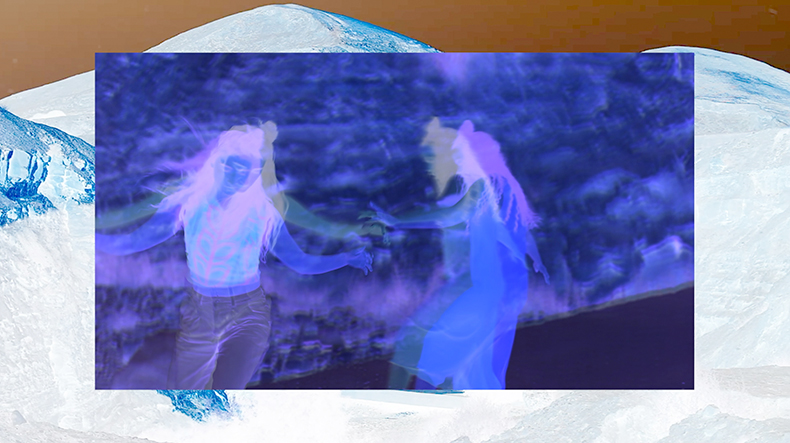
May amnesia never kiss us on the mouth (2020–ongoing; digital still), Basel Abbas and Ruanne Abou-Rahme. Courtesy the artists
Do you have images pinned up on the wall of your studio?
RAA: The current project involves some drawings I’ve been making, so those are pinned up – there are also photos taken in the process of filming, or stills from the archive that we’ve processed in some way. In New York [at the MoMA show] we had a series of still images and drawings and text – so we tend to pin things up to work on the layout, how these things overlap and speak to one another.
BA: We have a lot of prints that never made it into works – I’ve been pinning those up recently, both because there’s nowhere better to store them but I guess also because it’s like an alternate version of the final work.
What are you reading at the moment?
BA: Ruanne has lots of poetry books lying around that I’ve been picking up recently – including a book of Fred Moten’s poetry.
RAA: Yeah, if we’re talking entire books, Moten’s [theoretical work] In the Break was key in our most recent project. But often we do a lot of focused reading of articles, rather than books – going into an article with close, repeated readings of the same text is an important part of our process. We’re the kind of people that read the same thing obsessively over and over again.

May amnesia never kiss us on the mouth, installed at MoMA, New York, in April 2022. Photo Jonathan Muzikar
Do you listen to music?
BA: It’s pretty noisy in the studio. When we’re doing non-audio work, we try to rest our ears.
What’s the weirdest object in there?
RAA: We have a recording booth in our home.
BA: That’s pretty weird, actually. You could fit a quartet in there. Visitors think it’s some kind of chamber – it looks a bit like a torture chamber.
RAA: It’s called the WhisperRoom…
BA: Yeah, that’s the name of the brand. Which is kind of weird in itself.
Which artistic tool could you least do without?
BA: There are so many, but if I could only have one – in the desert, say – I’d take a little eight-bit sampler I have called the microGranny, which I could record sound straight on to. I’d take that, with a lot of batteries.
RAA: I’d probably take my computer, you know. I could write, I could edit, I could process images…
Who’s the most interesting visitor you’ve ever had to your studio?
BA: I have kind of a cheesy answer. At one of our older studios, someone left a big box of records outside our door. I’ve no idea who it was – we were on the third floor of our building and it was nowhere near anyone else’s door. My first instinct was to throw them away – but then I thought, ‘There’s something for me in here’. And so I brought them into the house. I haven’t looked through them – it’s been five years now. I like the mystery.
RAA: He’s made us move these records from house to house. He thinks that, when the moment’s right, he’s going to find something really profound. It’s like some kind of urban myth.
Is anyone (or anything) banned?
RAA: Fascists.
BA: And, from the electronics room, liquids. Fascists and liquids.
‘Basel Abbas and Ruanne Abou-Rahme: May amnesia never kiss us on the mouth’ is at the Common Guild, Glasgow, from 9 September–9 October.
Unlimited access from just $16 every 3 months
Subscribe to get unlimited and exclusive access to the top art stories, interviews and exhibition reviews.


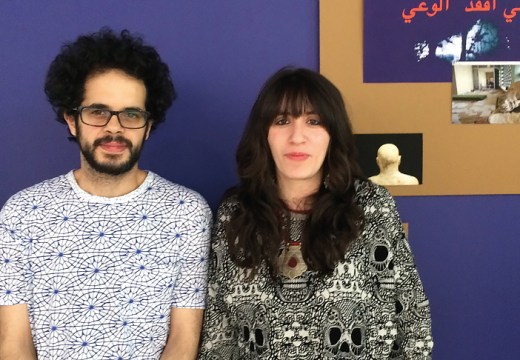
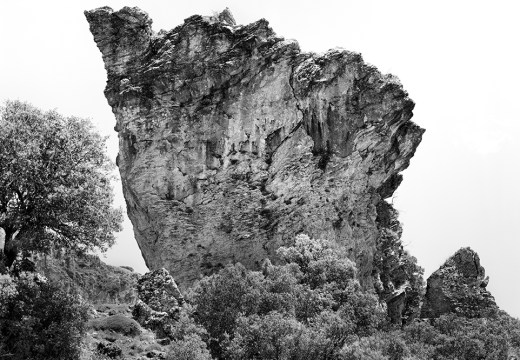
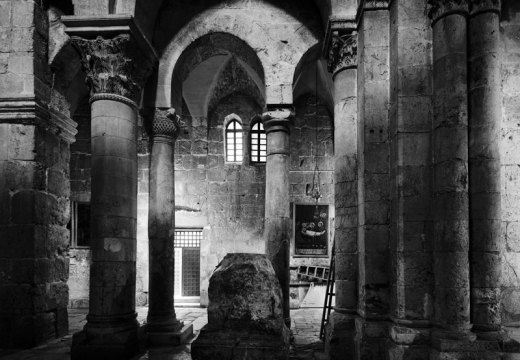








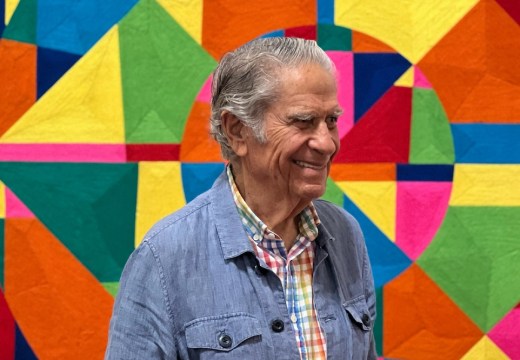
![Masterpiece [Re]discovery 2022. Photo: Ben Fisher Photography, courtesy of Masterpiece London](http://www.apollo-magazine.com/wp-content/uploads/2022/07/MPL2022_4263.jpg)
It’s time for the government of London to return to its rightful home